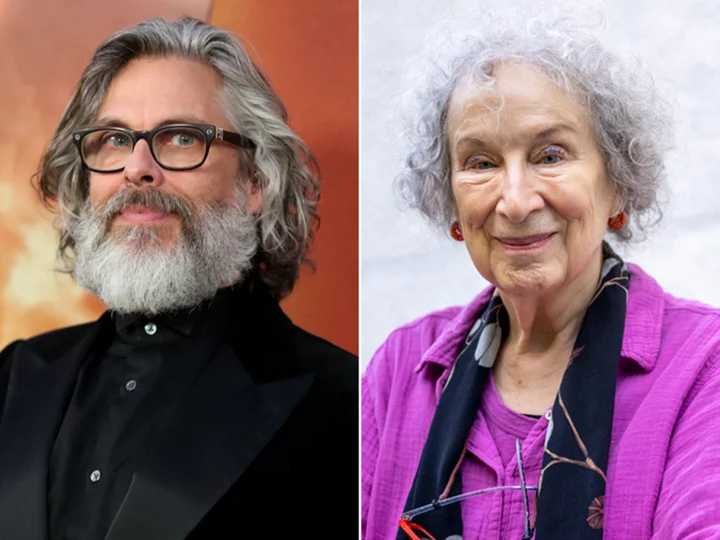Thousands of published authors are requesting payment from tech companies for the use of their copyrighted works in training artificial intelligence tools, marking the latest intellectual property critique to target AI development.
The list of more than 8,000 authors includes some of the world's most celebrated writers, including Margaret Atwood, Dan Brown, Michael Chabon, Jonathan Franzen, James Patterson, Jodi Picoult and Philip Pullman, among others.
In an open letter they signed, posted by the Authors Guild Tuesday, the writers accused AI companies of unfairly profiting from their work.
"Millions of copyrighted books, articles, essays, and poetry provide the 'food' for AI systems, endless meals for which there has been no bill," the letter said. "You're spending billions of dollars to develop AI technology. It is only fair that you compensate us for using our writings, without which AI would be banal and extremely limited."
Tuesday's letter was addressed to the CEOs of ChatGPT-maker OpenAI, Facebook-parent Meta, Google, Stability AI, IBM and Microsoft. Most of the companies didn't immediately respond to a request for comment. Meta, Microsoft and Stability AI declined to comment.
Much of the tech industry is now working to develop AI tools that can generate compelling images and written work in response to user prompts. These tools are built on large language models, which are trained on vast troves of information online. But recently, there has been growing pressure on tech companies over alleged intellectual property violations with this training process.
This month, comedian Sarah Silverman and two authors filed a copyright lawsuit against OpenAI and Meta, while a proposed class-action suit accused Google of "stealing everything ever created and shared on the internet by hundreds of millions of Americans," including copyrighted content. Google has called the lawsuit "baseless," saying it has been upfront for years that it uses public data to train its algorithms. OpenAI did not previously respond to a request for comment on the suit.
In addition to demanding compensation "for the past and ongoing use of our works in your generative AI programs," the thousands of authors who signed the letter this week called on AI companies to seek permission before using the copyrighted material. They also urged the companies to pay writers when their work is featured in the results of generative AI, "whether or not the outputs are infringing under current law."
The letter also cites this year's Supreme Court holding in Warhol v Goldsmith, which found that the late artist Andy Warhol infringed on a photographer's copyright when he created a series of silk screens based on a photograph of the late singer Prince. The court ruled that Warhol did not sufficiently "transform" the underlying photograph so as to avoid copyright infringement.
"The high commerciality of your use argues against fair use," the authors wrote to the AI companies.
In May, OpenAI CEO Sam Altman appeared to acknowledge more needs to be done to address concerns from creators about how AI systems use their works.
"We're trying to work on new models where if an AI system is using your content, or if it's using your style, you get paid for that," he said at an event.
-- CNN's Catherine Thorbecke contributed to this report.

